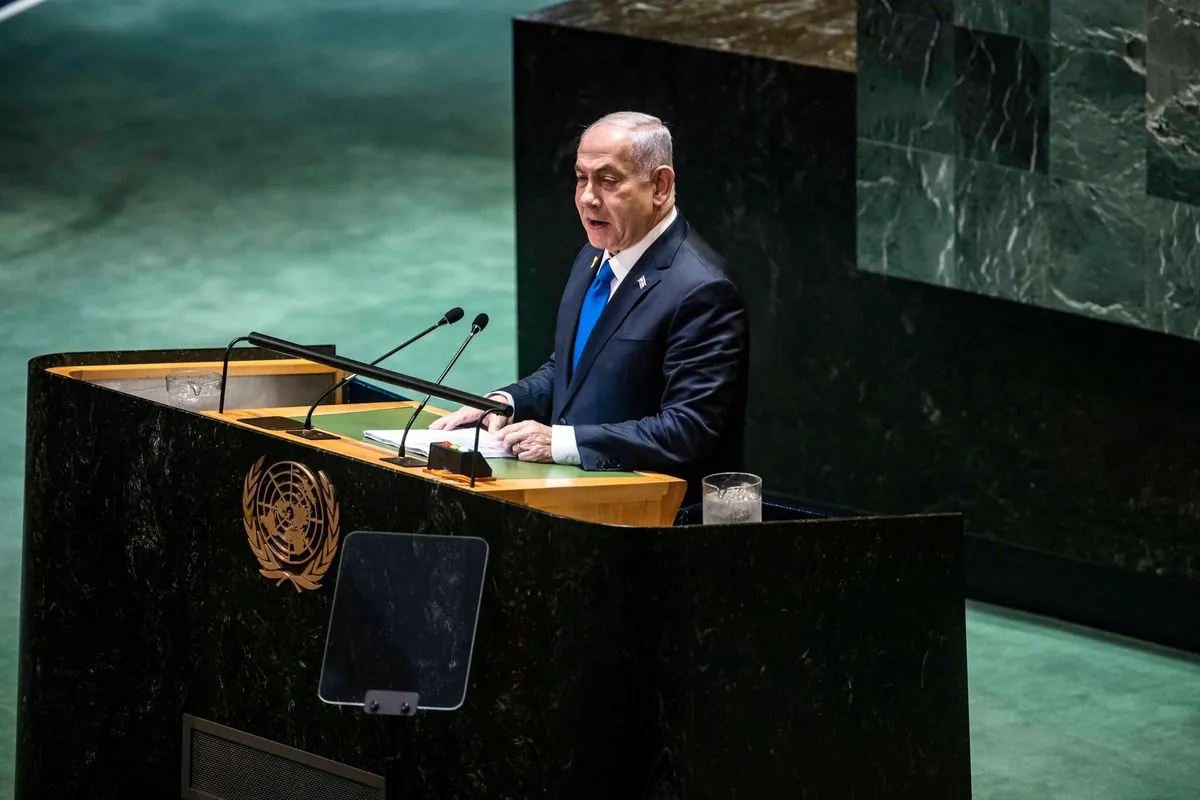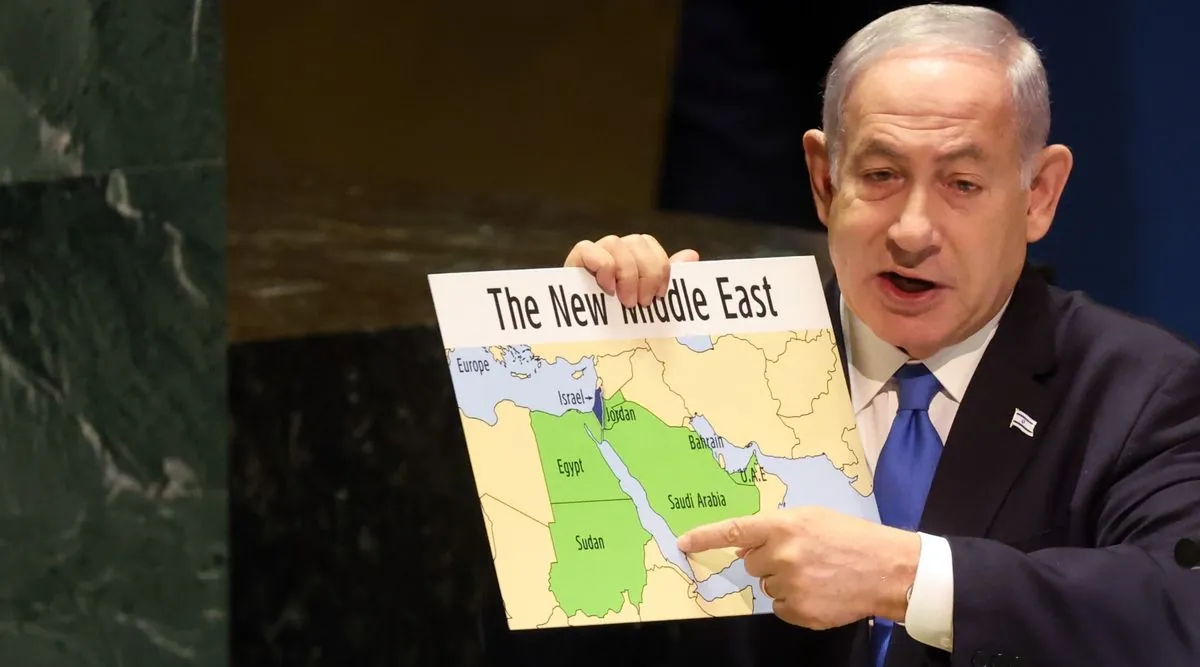Netanyahu Defends Israel's Actions at UN Amid Ongoing Conflicts
Israeli PM Benjamin Netanyahu addressed the UN General Assembly, defending his nation's military operations and accusing other leaders of spreading misinformation about Israel's actions in Gaza and Lebanon.

Benjamin Netanyahu, Israel's Prime Minister, addressed the United Nations General Assembly on September 22, 2024, amidst ongoing conflicts in Gaza and Lebanon. His appearance came nearly a year after the October 7, 2023, attacks by Hamas on Israel, which triggered an Israeli military response that has had significant consequences in the region.
Netanyahu's decision to speak at the UN was prompted by what he perceived as misinformation spread by other world leaders. He stated, "I didn't intend to come here this year. My country is at war fighting for its life. But after I heard the lies and slanders leveled at my country by many of the speakers at this podium, I decided to come here and set the record straight."
The Israeli leader, who has served as Prime Minister for a total of 16 years, defended his nation's military operations, insisting they were necessary for Israel's self-defense. He also directed accusations at Iran, stating, "If you strike us, we will strike you," and attributing many of the region's problems to Iranian influence.

The ongoing conflict has resulted in significant casualties and displacement. According to the Gaza Health Ministry, over 41,500 Palestinians have been killed and more than 96,000 wounded since the start of Israel's campaign. The United Nations Relief and Works Agency (UNRWA) has been providing assistance to Palestinian refugees affected by the conflict.
In Lebanon, Israel's military actions against Hezbollah, a Lebanese Shiite Islamist political party and militant group formed in 1982, have led to civilian casualties and displacement. The UN reports that over 200,000 people have been displaced in Lebanon since the conflict began.
The international community has called for de-escalation. On September 20, 2024, the United States, France, and other allies jointly urged an "immediate" 21-day ceasefire to allow for negotiations. This call came after 11 months of cross-border exchanges between Israel and Hezbollah, raising concerns about a potential all-out war.
"Mr. Netanyahu, stop this war now."
The UN General Assembly session was marked by criticism of Israel's actions. Slovenian Prime Minister Robert Golob and Pakistani Prime Minister Shehbaz Sharif both condemned Israel's military operations, with Sharif describing the situation in Gaza as "systematic slaughter of innocent people of Palestine."
The ongoing conflict has reignited discussions about long-standing issues in the region. The status of Jerusalem, one of the core issues in the Israeli-Palestinian conflict, remains unresolved. The West Bank barrier, construction of which began in 2002, continues to be controversial in international law. The International Criminal Court has opened an investigation into alleged war crimes in Palestinian territories.
As the situation unfolds, the international community remains focused on finding a peaceful resolution. The Quartet on the Middle East, established in 2002 and consisting of the UN, EU, US, and Russia, continues its efforts to mediate the conflict. However, with tensions high and casualties mounting, the path to peace remains uncertain.


































